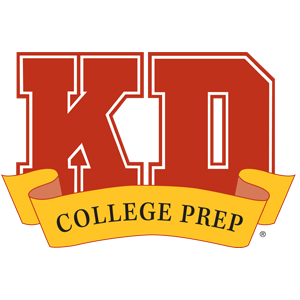College is not always a “normal” next step in life for everyone applying.
In fact, one fifth of matriculating college students in 2015 had parents who did not receive a four-year degree. These individuals are sometimes called first generation college students (FGCS).
For you, maybe growing up didn’t involve “When I was in college…” stories around the dinner table or comments like, “Make sure you get plugged-in to a campus organization so you don’t get too isolated!”
Your experience may be different from your peers, but at many colleges you’ll have access to programs and support to help balance out any differences.
If you or someone you love will navigate the college admissions process as a soon-to-be FGCS, check out these tips and resources for first-generation college students.
Who is considered a first-generation college student?
Pioneers who brave the new-to-them college world without an immediate guardian’s example to follow are known as first-generation college students.
Sometimes colleges, grants, or scholarships define a FGCS as the first-in-family to attend college, meaning no parent, guardian, or sibling has earned any type of higher education degree, including certifications or an associate degree.
However, many foundations and colleges broaden their definition of FGCS to be more inclusive. To them, a student is considered an FGCS if his or her parents or guardians did not obtain a four-year bachelor’s degree.
What challenges do first-generation college students face?
FGCS often come from minority or economically disadvantaged households. This disparity between first-generation college students and their peers can create several unique challenges.
Blazing a new trail can be an isolating and nerve-wracking experience for first-generation college students. In addition to college-level school work, studies show that FGCS often take on part-time or full-time work.
For first-gen students, there are typically no family ties to the college or a network of connections. College goals may also conflict with social expectations, causing students to feel alone throughout the college admissions process.
With the stress and financial pressure, students may struggle to maintain a sense of the finish line through the confusing newness the college experience.
Maybe they struggle with planning. Maybe they don’t know where to go to ask questions or get help. Maybe they’re unaware of the many resources created to support them.
Perhaps because of these reasons, only 11 percent of FGCS graduate.
How can future first-generation college students prepare for college?
High school is a great time to start preparing for college life and find a college that meets your needs. You don’t have to go through it all alone!
Fortunately, there are colleges that are finally making strides to provide resources so that all students can be successful.
If you’re reading this as a high school student, chances are that you’re going to be part of the 11 percent (and growing) figure. You’re already asking the right questions.
Below we’ve outlined a step-by-step process to help you start preparing for college.
Talk to Your High School Counselor
First things first: discuss your college goals with your high school counselor. He or she will help guide you through your first steps like choosing high school classes that will show colleges that you are prepared for college-level coursework.
This crucial first step orients you for the rest of your journey. Your counselor can point you in the right direction and share available resources. Ask about college seminars, college admissions testing and possible fee waivers, recommendation letters, resume building, job options, and career planning.
Talk to Your Parents/Guardians
Before you dive into the college prep process, you want to ensure that you’re getting all the help you need.
Share your goals with your family early on in high school, and tell them how they can support you. Talking about these things early may give insight into how your family can support you, both financially and emotionally.
Contact College Admissions Offices
Once you have some colleges in mind, contact their admissions offices to learn more about college application requirements and scholarship opportunities.
Once you find contact information on a college website, here are some questions you can start with:
- When can I visit your campus?
- What do you look for in a potential student?
- I’m interested in studying __________, what programs do you offer in that field?
- What are your test score and other requirements?
- What deadlines should I be aware of?
Take College Admissions Tests
College admissions testing may sound daunting to a FGCS whose parents or relatives never took these tests. But it’s a necessary step in the college admissions process.
A good test score can open doors by expanding your college opportunities.
Register for the SAT® test or ACT® test. We recommend taking these tests during your junior year of high school. If cost is a concern, see if you’re eligible for the College Board® Fee Waiver or ACT Fee Waiver.
While not required for college applications, the PSAT test can help you earn scholarships. For more information, read “Is the PSAT Test Important?”
Fill out the FAFSA®
Did you know the first “F” in FAFSA stands for free? It’s a 10-page application for financial aid that requires financial information about your family’s income.
The federal government and colleges review this application to determine whether you meet the eligibility requirements for financial assistance.
To complete the FAFSA, follow these steps.
Take Advantage of Financial Help & Resources
College can be expensive, and many students need additional funding to make college realistic. But there’s good news! As an FGCS, you may be eligible for financial assistance or scholarships.
Types of Financial Aid for First-Generation Students
- Federal Grants
- University Grants & Scholarships
- Private Scholarships
- Federal Student Loans
- Work Study Programs
For more information about each of these forms of financial aid, read “How to Decode My Financial Aid Package.”
If you still come up a bit short when paying for college, try out these additional tips for how to save money for college.
Need help preparing for college?
We provide a variety of test prep and college counseling programs to help you achieve your college dreams. Contact a campus near you to get started.































